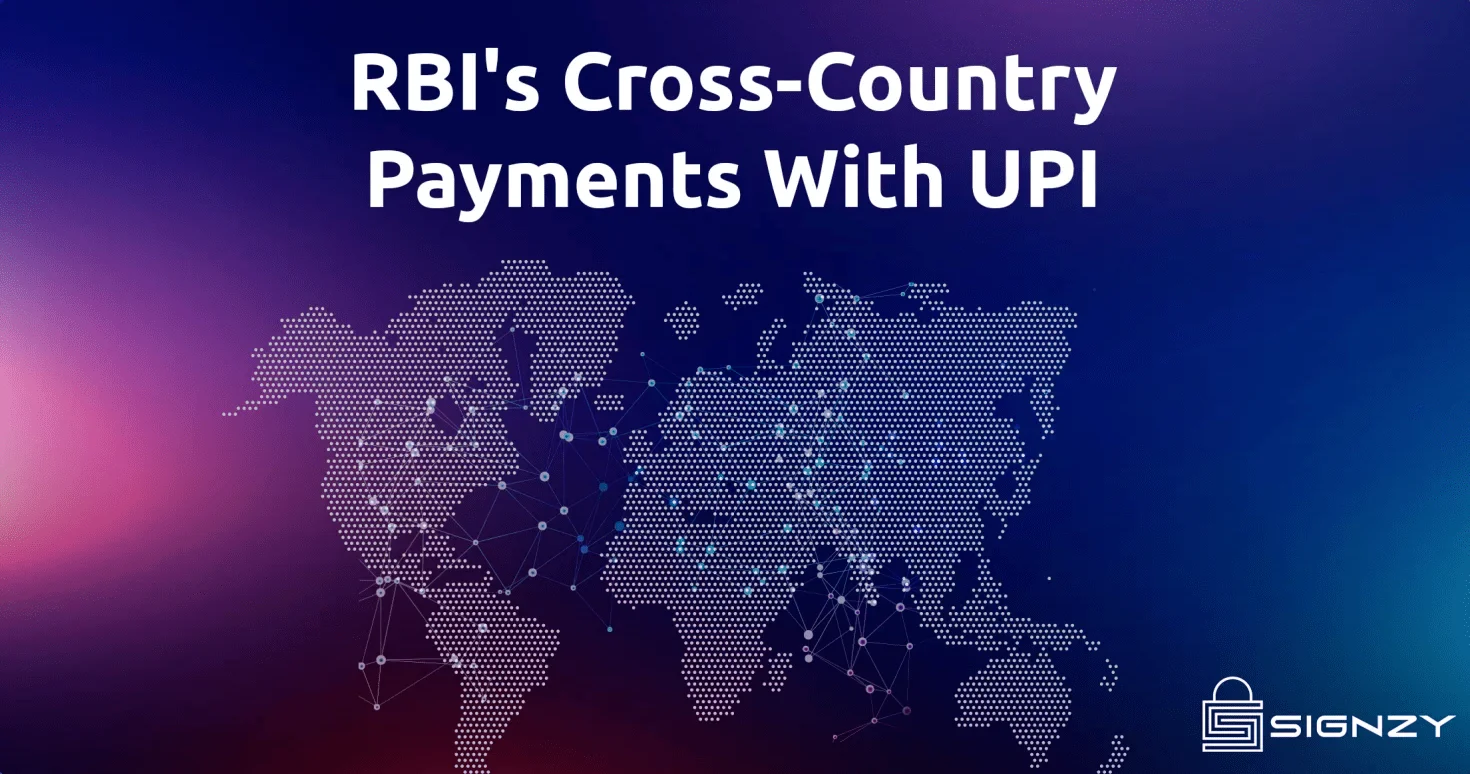India was the top recipient of remittances in the world in 2021, receiving over USD 87 billion. This represented a 4.6% increase above its remittance inflows from prior years. This is because remittances only represented 3.1% of the nation’s GDP in 2020.
Cross-country remittances are growing, and the Reserve Bank Of India(RBI) acknowledges this as they are deciding to act on it. Their initial plan is to add newer options to the 6-year-old Universal Payments Interface(UPI) that includes international payments. Prima facie is undoubtedly a step in the right direction. Yet we must look closely to see how it will impact the sector.
What Is RBI’s Initiative?
The Reserve Bank of India (RBI) stated in its annual report for FY21 that it is working on using UPI for cross-country transfers among jurisdictions.
RBI has looked into the idea of connecting UPI with comparable systems in other jurisdictions, particularly in the G20 countries, to improve cross-country and international payment arrangements. In addition, the apex bank claims to participate in the discussions over the fundamentals and roadmap of UPI and cross-country remittance with the Committee on Payments & Market Infrastructures (CPMI) and Financial Stability Board (FSB).
What Are Cross-Country Remittances?
For the uninitiated, cross-country remittances are transactions between individuals, companies, or banks in at least two countries. At the moment, cross-country and international payments are settled through a bank with branches in both nations. The bank converts money to local currency and charges users a commission of up to 10%. As a result, the procedure is time- and money-consuming.
What Is The Future Of Cross-Country Remittances In India?
The cornerstone of the cross-country payments ecosystem in India is likely to be laid by a similar agreement between PayNow, based in Singapore, and UPI’s governing organization, the National Payments Corporation of India (NPCI). The integration of UPI with PayNow has been formally announced, even though the efforts with different nations are at varying levels. According to the RBI, it should start operating in the second half of 2022.
The interlinking lowers the cost of cross-country remittances and will further anchor commerce, travel, and remittance flows between the two nations. It might also be used as an illustration of how different fast payment systems can be linked to sending money quickly and cheaply.
Essentially,
- NPCI, an RBI initiative, has collaborated with several foreign organizations to share the UPI infrastructure but prevents cross-country payments.
- The cross-country payments ecosystem in India is likely to be built around PayNow, a Singapore-based company, which is the sole partner of UPI.
- According to the RBI, efforts are in various phases with different countries, but cross-country remittance via PayNow will start after July 2022.
UPI For Cross-Country Remittances
One of India’s payment settlement infrastructures with the quickest growth is UPI. The interface enables peer-to-peer payments across banks and platforms with a single pin. UPI recorded transactions of INR 10.4 Lakh Cr. in May 2022 alone because of its scalability and simplicity of usage.
As a result, numerous nations took note of the stack and made plans to implement the UPI functioning model in their countries. For this, NPCI’s international division, NIPL, has agreements with several banks in nations like the UAE, the US, Nepal, China, Japan, and several regions of Africa. However, so far, these partnerships have been signed to share the infrastructure and not enable cross-country payments.
For instance, in August 2021, NIPL announced its partnership with UAE-based Mashreq Bank to benefit 2 Mn+ Indians who travel to UAE for business or leisure every year.
In July 2021, NPCI partnered with the Royal Monetary Authority (RMA) of Bhutan to initiate UPI-based payments in Bhutan and benefit an estimated 200,000 tourists from India who travel to the mountain nation annually.
Other successful international partnerships in this space include Discover Financial Services (DFS) USA, Japan Credit Bureau (JCB) Japan, Union Pay International (UPI) China, PPRO Financial, UK, and Network for Electronic Transfers (NETS), Singapore, and Liquid Group, Singapore.
Bottomline
Once RBI implements this aspect of UPI, transactions will boom, and fintech enterprises need to be ready. A simple digital adaptation to accommodate the transforming technology won’t cut it. All processes will have to qualify for international standards, and better security measures must be implemented. All this needs to be done without compromising the experience of the customer.
If you seek to improve your processes and be ready for the looming change, we at Signzy might be able to help out. Our No-code AI-driven resources that are fully customizable are built for your needs. Check it out here.
About Signzy
Signzy is a market-leading platform redefining the speed, accuracy, and experience of how financial institutions are onboarding customers and businesses – using the digital medium. The company’s award-winning no-code GO platform delivers seamless, end-to-end, and multi-channel onboarding journeys while offering customizable workflows. In addition, it gives these players access to an aggregated marketplace of 240+ bespoke APIs that can be easily added to any workflow with simple widgets.
Signzy is enabling ten million+ end customer and business onboarding every month at a success rate of 99% while reducing the speed to market from 6 months to 3-4 weeks. It works with over 240+ FIs globally, including the 4 largest banks in India, a Top 3 acquiring Bank in the US, and has a robust global partnership with Mastercard and Microsoft. The company’s product team is based out of Bengaluru and has a strong presence in Mumbai, New York, and Dubai.
Visit www.signzy.com for more information about us.
You can reach out to our team at reachout@signzy.com.
Written By:

Signzy
Written by an insightful Signzian intent on learning and sharing knowledge.



